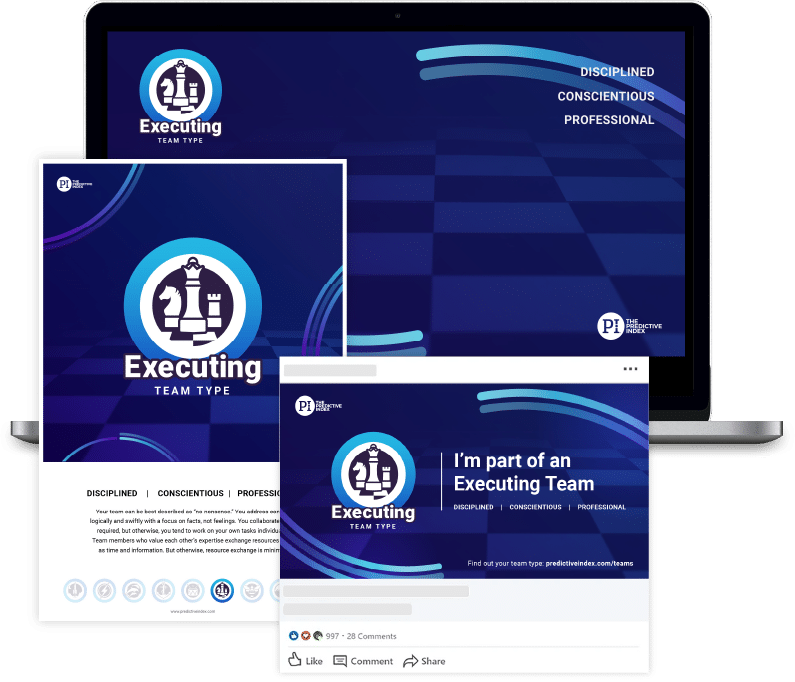
Executing Team Downloads
Celebrate your Team Type and download a virtual meeting background, team poster, and social graphic to share with your network.
Download PackageCharacteristics of an Executing Team
Natural Strengths
- Committed to efficiency
- Adept at enhancing productivity
- Committed to quality
Caution Areas
- Overly focused on internal resources
- Occasionally impersonal and lacking cohesion
- Unwavering on how the work gets done
How Executing Teams take action
Self-aware teams understand their strongest tendencies and blind spots, and they take action accordingly. Executing Teams can take advantage of their strengths while addressing shortcomings, by:
Trying to deepen relationships. Your team is focused on the work to be done, which is part of what makes it effective. But that focus can come at the cost of interpersonal relationships. Encourage team members to engage in non-tactical conversations from time to time, setting up coffee chats, lunches, or happy hours. In doing so, your team members can use the relationship guide to better understand and communicate with one another.
Establishing rules for feedback. There may be a tendency among team members to focus feedback on where things fell short. Over time, this can take a toll on morale. Try to establish guidelines for providing feedback. For example, maybe team members get in the habit of asking permission before sharing feedback, or make a point to balance constructive criticism with at least one piece of praise.
Revisiting established processes regularly. Your team is focused on execution, and as a result, generally believes in the established ways of doing things as the “right” ways. This could cause friction when circumstances dictate you move faster. Try to revisit processes with regularity, and consider what steps might be flexible or even removable. Think about how to become more efficient without sacrificing the quality that makes your team great.